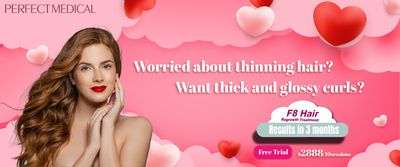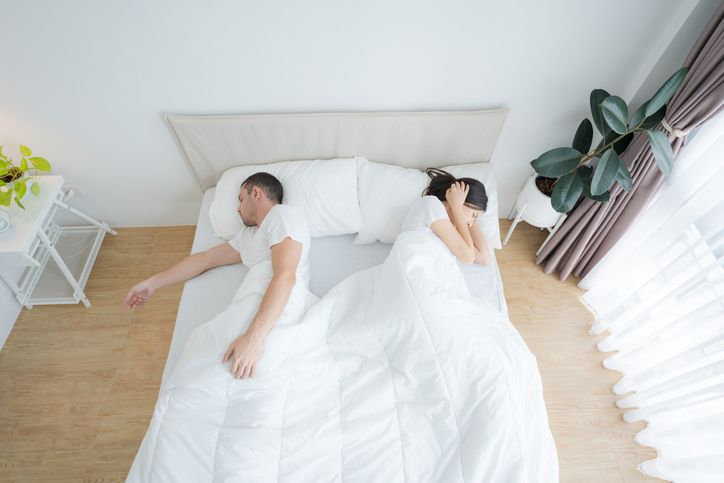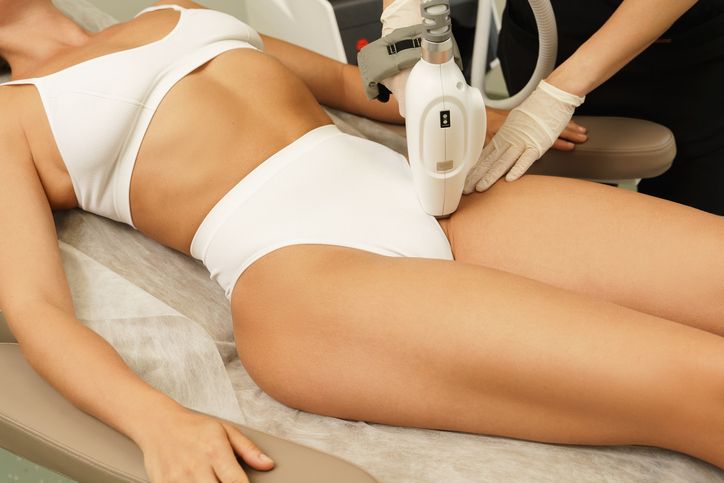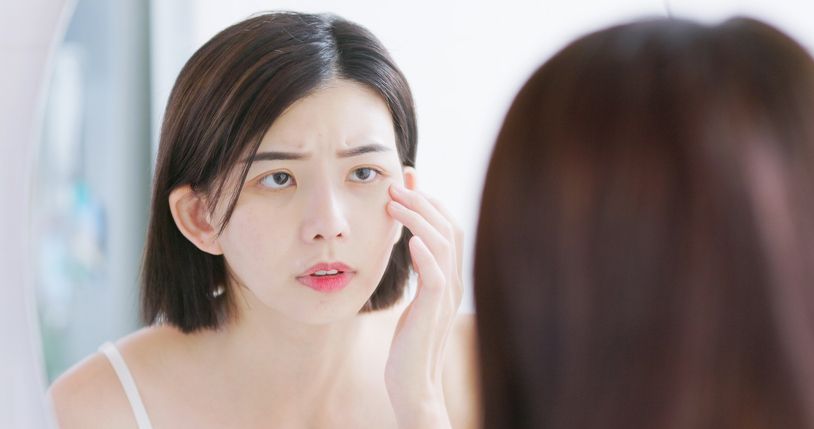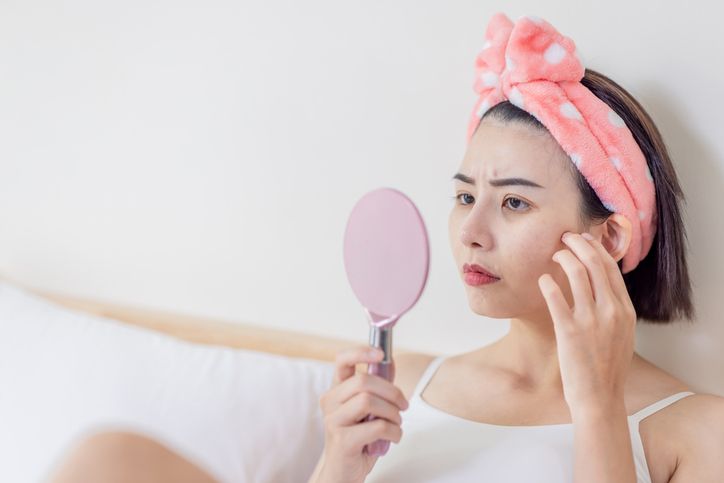- Home
- Trend
- Weight Loss Strategies
- Acne Tips
- Hair Health Information
- Blemish Removal Tips
- Acne Scar Removal Tips
- Muscle Building Techniques
- Intimate Care Tips
- Postpartum Intimate Care
- Eye Bags Wiki
- Tips for Face Slimming
- Secret of Permanent Hair Removal
- Breast Enlargement Tips
- Cure to Snoring
- Marionette Lines
- Skin-Tightening Secrets
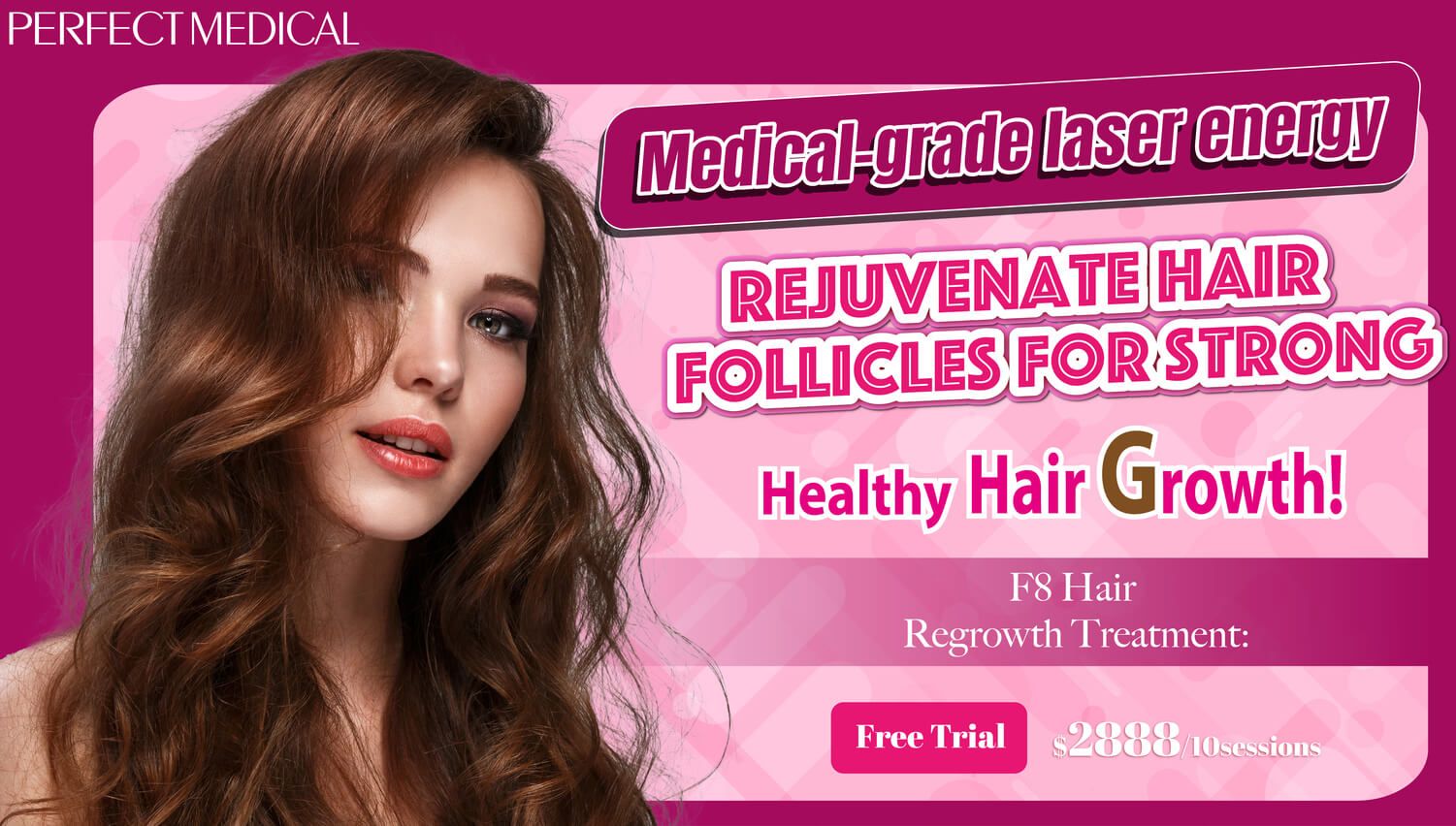
免費體驗
F8 Hair Regrowth Treatment
1 Minute Self-Registration
Date should not be before minimal date
Achieving healthy hair growth isn’t just about the right products; it’s also deeply intertwined with our biology and lifestyle choices. Whether you’re trying to grow your hair after a bad cut or you’re dealing with hair loss and thinning, understanding the science behind hair growth can empower you to make smarter decisions for your hair and scalp health. Let’s break down the factors that influence how your hair grows and explore how you can combat these challenges.
1
Factors Affecting Hair Growth
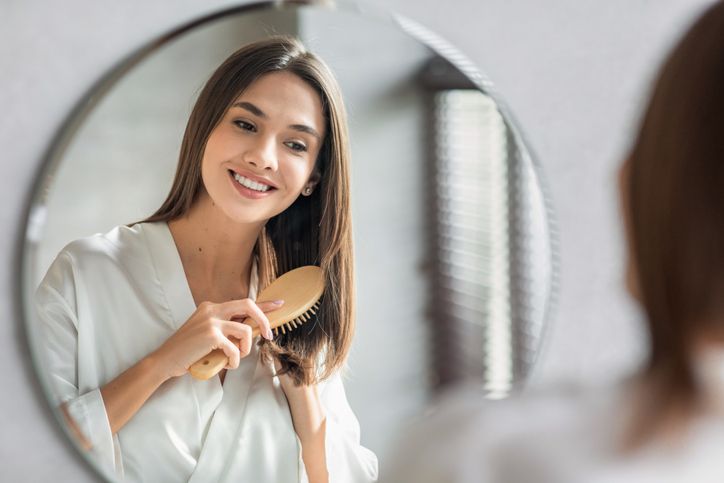
Genetics
Think of your genes as the blueprint for your hair’s characteristics. They set the baseline for your hair density, growth rate, length, and texture. This genetic lottery means that some of us have hair that naturally grows thick and fast, while others might find their hair grows more slowly or is finer. While genetics isn’t something we can change, being aware of this can help us adjust our expectations and customize our hair care routine to better suit our individual hair type.
Aging
As we get older, many of us notice our hair doesn’t quite have the pep it used to. This slowdown in hair growth can be attributed to a few biological changes: decreased cell production, which means slower follicle turnover, and hormonal shifts that can diminish the vitality of your hair follicles. To counteract aging’s toll, consider integrating hair growth supplements and nourishing hair products that rejuvenate hair and scalp.
Hormonal Changes
Hormones are like the chemical messengers of our bodies, and they play a pivotal role in regulating hair growth. Changes during pregnancy, menopause, or thyroid imbalances can throw these messages into disarray, often resulting in increased hair shedding or slower hair growth. If hormonal swings are messing with your mane, consulting with a healthcare professional can provide targeted ways to help stabilize your hair health.
Malnutrition
Your hair is what you eat, quite literally! Lack of proper nutrition can starve your hair follicles, depriving them of the necessary building blocks like proteins, vitamins, and minerals essential for robust hair growth. Iron, zinc, and vitamins A and E, for instance, are crucial for the production of hair cells and can help your hair grow faster and stronger. Ensuring a balanced diet is a foundational step in fostering healthy hair.
Stress
The connection between stress and hair health is more than just anecdotal. Stress can trigger a condition known as telogen effluvium, forcing hair follicles into a resting phase prematurely. This not only stops hair from growing but can lead to noticeable hair shedding. Combat stress through mindfulness practices, regular exercise, and adequate sleep—all of which can help mitigate its effects and encourage hair growth.
Medical Conditions
Certain medical challenges, like alopecia areata and other autoimmune diseases, directly target hair follicles, often leading to hair loss. Scalp conditions like psoriasis can also create a hostile environment for hair growth. Addressing these health issues with the guidance of a medical professional can drastically improve hair growth outcomes.
Medication
Some medications, especially those for serious conditions like cancer (chemotherapy), can aggressively cause hair loss. This side effect can be distressing, but it’s often reversible. Discussing potential alternative medications or treatments that are less harsh on your hair can be a useful conversation with your healthcare provider.
Environmental Damages
Our environment can be tough on our hair. Pollutants and UV rays can attack the hair shaft, weakening it and making it prone to breakage. Cold, harsh weather can make your hair brittle and dry. Protecting your hair with suitable products like leave-in conditioners and hair masks that shield and penetrate your hair can defend against these environmental stresses.
Bad Scalp and Hair Care Habits
Lastly, the way we treat our hair on a daily basis has a profound impact. Over-styling, excessive heat, chemical treatments, and even how we brush our hair can weaken the hair shaft, disrupt the hair follicles, and slow down hair growth. Embracing gentler styling methods and being mindful of the physical stress we put on our hair can lead to improved hair health and faster hair growth.
2
Lifestyle Tips to Make Your Hair Grow Faster and Longer!

Maintaining long, healthy locks isn't just about what products you use; it's also about the overall care you give your body and your hair. Here are some essential tips to incorporate into your daily routine to help your hair grow healthier, stronger, and faster.
A Good Diet for Hair Growth Supplements
Remember, hair is primarily made up of keratin, a type of protein. So, it makes sense that adequate protein intake is vital for robust hair follicle health and growth. But that's not all—deficiencies in iron, zinc, biotin, and vitamins D, E, and A can also significantly hinder your hair’s growth. To combat this, ensure your diet is rich in fruits, vegetables, whole grains, and lean proteins.
For those experiencing more noticeable hair loss, biotin, sometimes celebrated as a hair growth miracle, might help. While it’s not a fix-all, studies suggest that biotin deficiency could lead to hair loss, and supplementing it may promote hair growth if you’re lacking. Just be sure to consult with a healthcare provider before starting any supplement regimen.
Trim Your Dry, Damaged or Split Ends Regularly
Here’s a hair tip that might seem counterintuitive: if you want to grow your hair faster, you should actually cut it... occasionally. Split ends can travel up the hair shaft, causing breakage and making your hair appear shorter and less healthy. Regular trims—every 6-8 weeks—can prevent this, removing split ends and promoting healthier hair growth. Think of it as routine maintenance to keep your engine running smoothly.
Using Hair Masks
Hair masks might not be a magic solution for sprouting new hair strands, but they do play a critical role in maintaining the strength and health of your hair. By delivering intense moisture and nutrients, hair masks make your hair less prone to breakage and more likely to reach its full growth potential. Some masks are even designed to stimulate the scalp, potentially improving blood flow to hair follicles.
When using a hair mask, always start with clean, damp hair. Apply the mask focusing on the mid-lengths to ends, where hair tends to be the driest and most damaged. Leave it on for 20-30 minutes before rinsing thoroughly. While beneficial, remember that overusing hair masks can lead to product buildup, so balance is key.
Ditch Silicones
Silicones are a double-edged sword in hair care. On one hand, they coat hair strands, enhancing shine and reducing frizz; they also help detangle and protect your hair from heat damage. However, certain silicones can build up on your hair, weighing it down and potentially clogging hair follicles—a scenario that may lead to scalp inflammation and hair loss.
If you’re dealing with hair that’s fine or prone to falling flat, consider using a clarifying shampoo regularly to remove buildup. Alternatively, look for water-soluble silicones, which provide the benefits without the heavy residue. This will keep your hair and scalp happier in the long run.
Protect Your Hair from UV Damages
Just like your skin, your hair suffers when exposed to the harsh rays of the sun. UV rays can break down keratin, the vital protein that gives your hair its strength and resilience, leaving it weaker and more prone to splitting. Moreover, strong sun exposure can irritate and dry out your scalp, creating a less-than-ideal environment for hair growth.
To shield your hair from the damaging effects of UV exposure, consider wearing a wide-brimmed hat or a scarf for physical protection. Incorporating leave-in conditioners with SPF or UV filters can also be a great way to protect while keeping your hair moisturized. After spending time in the sun, a cool rinse followed by a deep conditioner can replenish any moisture lost to UV rays, helping to maintain healthy hair growth.
Avoid Overly Hot Showers
While a steamy shower can feel relaxing, overly hot water can strip away the natural oils that coat and protect your hair and scalp. This not only leaves your hair dry and brittle—more prone to breakage—but can also weaken the hair's protein structure, impacting its growth potential.
Additionally, the heat can irritate your scalp, potentially leading to dryness, flaking, or inflammation—all of which are detrimental to creating an optimal scalp environment for hair growth.
Scalp Massage
Think of a scalp massage as a workout for your scalp. Regular massages can improve blood circulation, potentially stimulating hair growth by invigorating the hair follicles. Just a few minutes a day can contribute to a healthier scalp and, consequently, can help your hair grow.
Sleep on Silk Pillowcases
Switching from a cotton to a silk pillowcase can make a surprising difference in your hair health. Cotton, being rougher, can cause hair to snag, tangle, and break more easily while you sleep. It also absorbs moisture from your hair, leaving it dry and more susceptible to damage. Silk offers a smoother surface, reducing friction and helping to prevent breakage and tangles. This simple change can help your hair retain its length and vitality, making it look fuller and healthier.
Wash Your Hair Regularly
Finding the right balance in how often you wash your hair is crucial. Washing too frequently can strip hair of its natural oils, but washing too infrequently can lead to buildup on your scalp. Depending on your hair type, you might need to adjust your washing frequency—oily hair may require more frequent washing than dry hair.
Shampoo Two Times
Double-shampooing can be an effective way to ensure a thoroughly clean scalp, which is vital for healthy hair growth. The first wash helps remove surface dirt, oil, and styling products, while the second wash tackles more stubborn buildup and excess oil. This not only creates a cleaner scalp environment but also enhances blood circulation through the massaging action, potentially benefiting hair follicle health. However, this method isn't for everyone—those with particularly dry or fine hair may find it too stripping. If you have thick, oily hair or use a lot of products, double-shampooing might be beneficial for you.
Brush Your Hair Correctly
Correct brushing can mean the difference between strong, healthy hair and hair weakened by breakage. To brush your hair correctly, always start from the ends and gently work your way up to the roots to detangle each section without stress. Using a wide-tooth comb or a tangle teezer can significantly reduce pulling and breakage, particularly when you handle knots and tangles with care.
Don’t Brush Wet Hair
Wet hair is particularly vulnerable—it stretches more easily, breaks, and its cuticle is prone to damage. The brushing of wet hair can be detrimental, leading to increased breakage and a thinner appearance overall. To manage wet hair more gently, wait until it's damp rather than soaking wet before brushing. Applying a detangling spray or conditioner can also make wet hair smoother and less susceptible to damage during combing.
Don't Rub Hair with a Towel
Drying your hair might seem like a simple task, but the way you do it can impact its health. Instead of rubbing your hair with a towel, which can stretch and break the strands, gently pat it with a microfiber towel. These towels are designed to be kinder to your hair, absorbing water more effectively with less friction. For an even gentler approach, consider using an old, soft t-shirt to squeeze out excess water, which can help preserve the integrity of the hair's cuticle and enhance overall hair health.
Avoid Harsh Chemicals in Hair Products
Many commercial hair products contain chemicals that can be harsh on your hair and scalp. Sulfates, for example, are effective cleansers but can strip away natural oils, leaving hair dry and brittle. Opting for products with gentler cleansing agents derived from natural sources like coconut can cleanse effectively without the harsh effects. Similarly, while alcohols and formaldehyde-releasing agents are common in styling products, they can be drying and potentially damaging. Consider alternatives like natural oils, shea butter, or glycerin, which provide moisture and nourishment without the adverse effects.
Try Hair Oils
Hair oils are a crucial element in maintaining and enhancing hair health. They are especially beneficial for locking in moisture, which prevents dryness and breakage, common impediments to hair growth. Some oils, like rosemary oil, are celebrated for potentially boosting scalp circulation, creating a nurturing environment for hair follicles. Additionally, oils that are rich in essential fatty acids can strengthen hair strands, allowing them to grow longer and resist breakage. Among the best oils for hair growth are rosemary oil, which might stimulate growth much like minoxidil, peppermint oil for improving circulation, and jojoba oil, which closely mimics the natural sebum found in hair. To incorporate these oils into your routine, mix a few drops with a carrier oil such as jojoba or almond oil, apply primarily to the ends and lengths where dryness and breakage occur, and use sparingly on the scalp to avoid clogging pores. Remember, while beneficial, heavy oils can leave fine hair feeling greasy, and some might cause allergic reactions.
Go Easy on the High Ponytail
Tight hairstyles, such as high ponytails, can lead to traction alopecia, which results in breakage and premature hair loss along the hairline. To avoid this, opt for looser hairstyles that reduce tension and thus minimize damage to your hair. This simple change can significantly improve the overall health of your hair and reduce the risk of damaging your scalp and hairline.
Manage Your Stress
Chronic stress is a significant factor that can contribute to hair loss. Managing stress through relaxation techniques such as meditation, yoga, or deep breathing exercises can help reduce its impact and promote healthier hair growth. By incorporating these stress management strategies into your daily routine, you can create a more conducive environment for healthy hair.
Improve Your Sleep Quality
Quality sleep is essential for overall health, and the same goes for hair health. Aiming for 7-8 hours of restful sleep allows your body to repair and regenerate, which includes fostering healthy hair growth. Enhancing your sleep quality can have a noticeable effect on your hair's health and appearance.
Lay Off the High Heat Hair Tools
Excessive use of high heat styling tools can severely damage your hair, leading to breakage and hindering its growth. Whenever possible, let your hair air dry or use a blow dryer on a low setting. Always apply a heat protectant spray before using any heat tools like straighteners or curling irons to minimize damage.
Take Breaks between Bleaching, Coloring, or Perming Your Hair
The chemicals involved in bleaching, coloring, or perming can be harsh, stripping hair of its natural moisture and weakening its structure. This can lead to increased breakage and split ends, making it necessary to trim hair more frequently, which can counteract growth efforts. To maintain healthy hair growth, even when undergoing chemical treatments, try to space out treatments to allow your hair time to recover. Also, make it a habit to use deep conditioners regularly to replenish moisture and repair damage caused by these treatments.
Use Over-the-Counter Minoxidil
If you're exploring options to enhance hair growth, consider trying minoxidil, available over-the-counter under brands like Rogaine. Minoxidil is believed to boost blood flow to the scalp and extend the hair's growth phase, resulting in longer, thicker strands. While generally safe, it does require ongoing use to maintain benefits, and discontinuation can lead to resumed hair loss. Common side effects include scalp irritation, dryness, or redness. It’s not suitable for everyone, particularly those with certain medical conditions or pregnant and breastfeeding women. Always perform a patch test to ensure you don’t react adversely, and consult a healthcare provider to see if minoxidil is right for you.
- Dealing With Hair Loss Speed: When Does Hair Loss Occurs & What To Do With It
- Can You Actually Trust Hair Thickening Products?
- Hair Loss In Shower: 10 Signs You Need to Start Worrying About Hair Fall
- Why is My Hair Thinning? Hair Loss in Hong Kong Women: 8 Top Causes + 22 Science-Proven Hair Growth Solutions: Remedies, Habits, Medication and More
3
F8 Hair Regrowth Treatment: Your Non-Surgical Answer to Combating Hair Loss and Enhancing Scalp Health
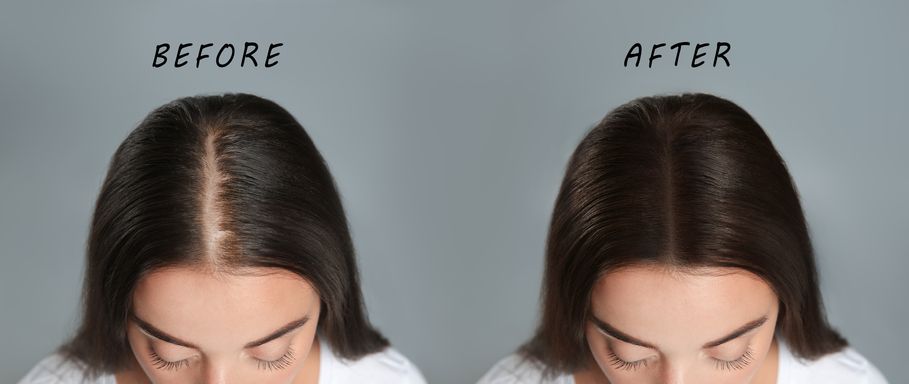
Are you looking for a way to make your hair grow faster and stronger? Check out Perfect Medical’s F8 Hair Regrowth Treatment, a top choice in Hong Kong for anyone seeking a safe and powerful solution for hair rejuvenation.
Imagine a treatment that revitalizes your hair follicles without any discomfort. That’s what you get with our bio-laser technology. It gently sweeps across your scalp, deeply penetrating to stimulate your hair follicles for natural and robust hair growth. But that’s not all; this laser energy also strengthens capillaries and enhances blood circulation, ensuring your scalp and hair roots are bathed in essential nutrients needed for optimal hair health.
During the treatment, we also apply a specialized, medical-grade hydrating serum to your scalp. This serum boosts moisture and nutrient delivery right to the hair roots while balancing oil production, creating the perfect environment for active hair follicles to thrive. The result? A noticeable reduction in hair loss and a full, vibrant hair growth in as little as three months!
What’s more, our bio-laser treatment is completely pain-free and doesn't irritate the skin, so you’ll feel comfortable throughout the process with no downtime needed. You can jump right back into your daily routine immediately after each session.
Ready to see the difference? Book a spot online for a complimentary trial of Perfect Medical’s F8 Hair Regrowth Treatment, which also includes a free hair and scalp analysis. Rediscover your hair’s potential and boost your confidence with visible results.
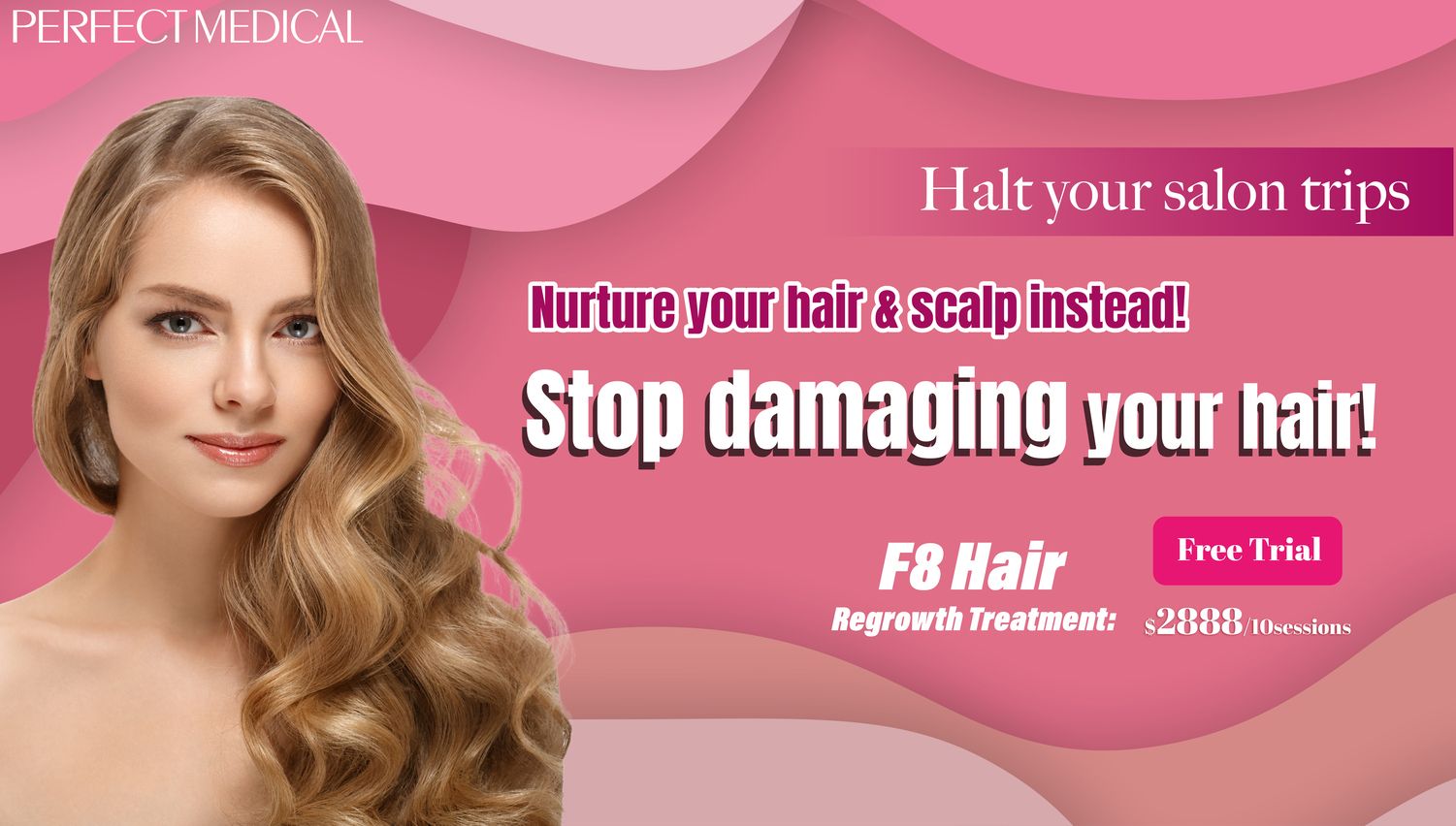
免費體驗
F8 Hair Regrowth Treatment
1 Minute Self-Registration
Date should not be before minimal date
FAQ

How often should I trim my hair to help it grow?
Trimming your hair every 8-12 weeks helps prevent split ends from working their way up the strand which can result in breakage and lost length.
Are there any effective hair growth supplements?
Hair growth supplements that contain biotin, vitamin D, zinc, and iron can help boost hair growth by nourishing the follicles from within.
Does scalp massage really promote hair growth?
Yes, regular scalp massages can increase blood flow to the hair follicles, which helps to promote hair growth by delivering more nutrients and oxygen.
Why is Perfect Medical's F8 Hair Regrowth Treatment good for faster, strong hair growth?
Perfect Medical's F8 Hair Regrowth Treatment excels in promoting faster, stronger hair growth by using bio-laser technology to activate hair follicles deeply and enhance scalp circulation. This scientifically advanced approach ensures optimal nutrient delivery and healthier, more vibrant hair growth.
How is Perfect Medical's F8 Hair Regrowth Treatment better than over-the-counter minoxidil and hair oils?
Unlike over-the-counter minoxidil and hair oils, Perfect Medical's F8 Hair Regrowth Treatment offers a non-invasive, laser-based solution that targets hair follicles more precisely without the common side effects like scalp irritation. This ensures a more comfortable, effective treatment experience, with visible results in as little as three months.
